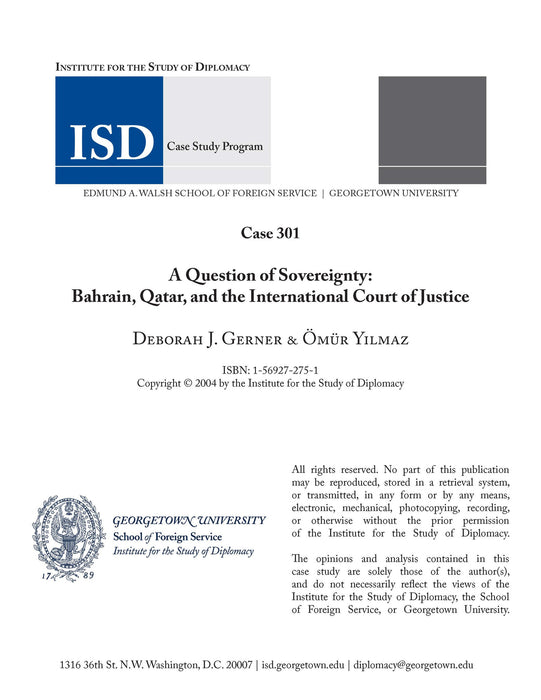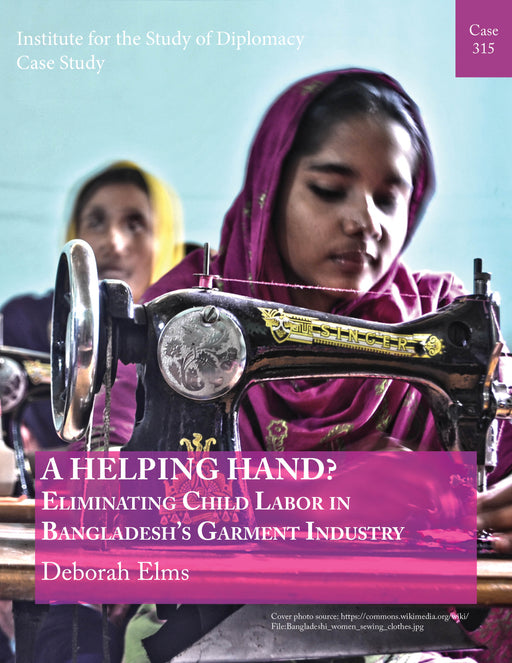Case 301 - A Question of Sovereignty: Bahrain, Qatar, and the International Court of Justice
Gerner, Deborah J. and Omur Yilmaz
This two-part case study examines the development and eventual resolution of a long-standing territorial dispute between two small Arab states, Bahrain and Qatar. That dispute turned into a conflict in which traditional mediation did not succeed, but formal international adjudication did. The decision of those two small states to subject themselves voluntarily to a binding verdict, one not subject to appeal, is remarkable in its own right.
The story begins at The Hague, where the two countries’ foreign ministers are awaiting the verdict of the International Court of Justice (ICJ). It then presents the background to the conflict, the key leaders involved, the issues at stake, and the initial ICJ ruling that it had jurisdiction to rule on the dispute. Next, it describes the functioning of the Court and looks at how the conflict evolved under new rulers in both countries. Part A ends with the formal presentation by Bahrain and Qatar of their cases to the ICJ. The eventual verdict is described in Part B.
The generational change represented by the Bahraini and Qatari leaders, both new, allows consideration of the importance of individual actors in such disputes. The case study also illustrates the fact that seemingly insignificant disputes can be complicated. It can be used in a variety of settings: specialized courses in conflict resolution or international law, an introductory international politics class, or a Middle East politics course. It is appropriate for all collegiate levels; however, students would be well served by having modest knowledge of either international law or the Middle East before tackling this case. Another case on a similar topic which could be usefully assigned is “Beagle Channel Negotiations” (Case Study 135).



